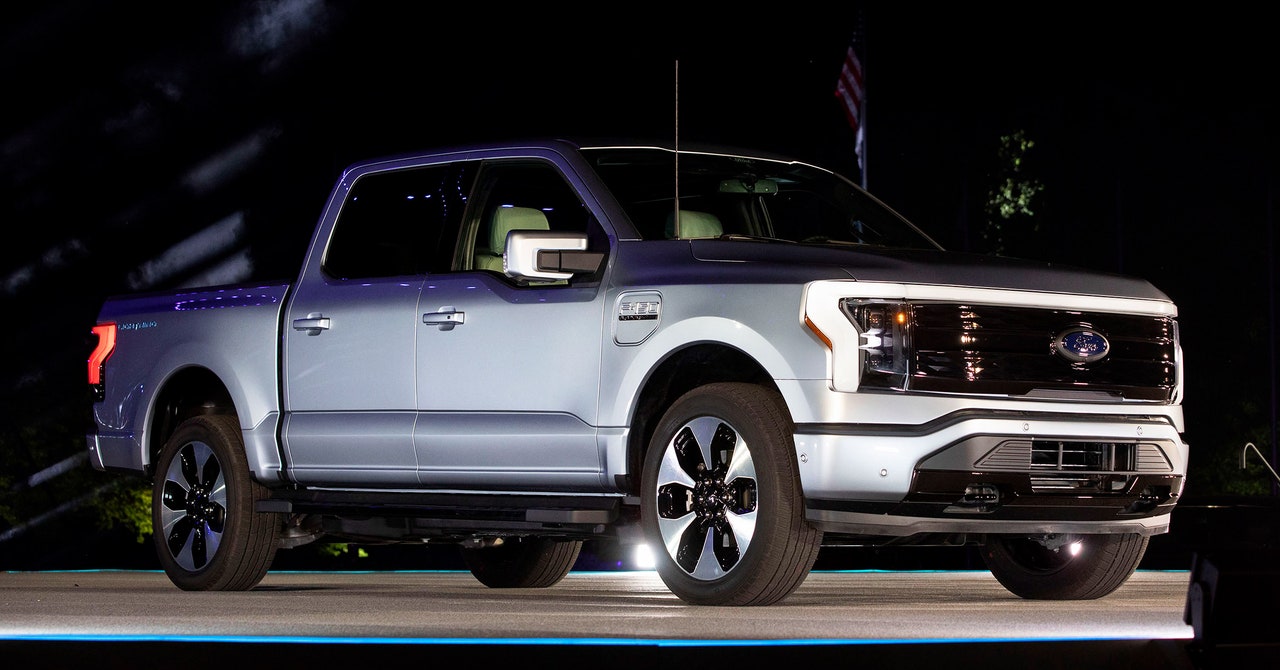they need to do something, because it is fucking out of control. every vehicle on the road except subcompacts are enormous. if you look at Civics or Corollas, compared to the 70s, 80s, and 90s, the models now are giant. look at the 1990s ford ranger compared to the one you can buy now. it's stupid. i drive a 20+ year old car and frankly, the new hybrid version doesn't really blow it out of the water when it comes to gas mileage. that's pathetic.
i would rather have better public transportation and much safer pedestrian/bicycling carveouts of course, but they make us have cars and the options for a little fuel sipper are getting narrower all the time.
but i'll be goddamned if there isn't always some new SUV model out on the road every month, distorting the gravity field as it goes by, with some name like the Nissan Dreadnought or the KIA Goliath or the Hyundai Leviathan. it's literally like 2008 never happened.
The SUVS increased the need for stronger, safer cars. So instead of optimizing fuel economy, they had to armor them up to ensure Karen in her killdozer distracted by whatever doesn't turn the average person into dog food.
If the US had crash test requirements based on pedestrian collisions like Europe, a lot of those super tall trucks would shrink.
Its so funny how car people(me included) complain about the old 15mph crash bumpers that were added to euro imports to make them compliant, and how everyone takes them off.
Flip up headlights on the other hand, were sadly very painful for pedestrians.
To make things even more fun, they are playing the same game even with the hybrid vehicles. Many of those are also getting huge (the Prius models just seem to keep inflating in size), but then they cheap out on the electric motors so that there is no towing capacity. Zero. You usually void your warranty if they find out you've been towing, and how could they not when you've added a tow bar? So now you have to buy a much larger vehicle just to cover the few times when you need the capacity, because you can't tow a single pound behind you, not even in a micro trailer.
Apparently a few vehicles are now being made with modest towing capacity, but they're all hybrid SUVs as far as I'm aware. Most of the car or wagon type hybrids (e.g. Prius, C-Max) still forbid towing. And I've noticed that they have also cheaped out on tow capacity even for the new hybrid pickups that the industry is so excited about. You have to buy an expensive battery upgrade for the Ford Lightning, for example.
By the way, those parody car names (Nissan Dreadnought, etc.) are right on the nose. Nissan makes an utterly immense SUV called the Armada. Gigantic V8 engine, body-on-frame construction, the works. I remember a TV ad that featured an ominous, booming voice: "you need a refuge from the urban jungle!".
Fucking Hummer EV that weighs 9 tonnes, has the potential energy of a small nuke, and can do 0 to 90 in less than the response time of the human nervous system.
Confession: 17-year-old me wanted a bright crimson red Armada because one of my favorite bands at the time was The Crimson Armada. I was very clever, believe me.
you look at Civics or Corollas, compared to the 70s, 80s, and 90s, the models now are giant.
I saw a first gen Ford Festiva the other day. It was beautiful.
I saw a classic Jeep Wrangler a while back and it had a smaller wheelbase than my sedan
I think the joke is that the cars are so heavy they project their own gravity on the surrounding environment
To understand the change, you need to start in the 1970s, when the “SUV loophole,” as policy nerds call it, was created.
I hate that the framing of this is just "nerds"
US lawmakers were writing the nation’s first auto pollution rules, at a time when the only people driving heavy vehicles like trucks were folks who had things to haul or real reasons to drive off-road. Farmers and construction workers and such. Who else would shell out to buy and fuel such a big set of wheels? It made sense to place trucks under more lenient fuel-efficiency rules than for cars.
Does it make sense though? It's a blatant corporate subsidy because the only ones who benefit are auto companies and large corporate customers
the only ones who benefit are auto companies and large corporate customers
also small business tyrants
yes but SMB tyrants get fucked by the big corpos too. the corpos sell the idea that any regulation will impact SMBs to sway public opinion but the narrative is usually false. the message has purchase in the US because so many people seem to envision themselves as a potential boss first and as a worker second.
Dealerships are some of the biggest lobbyists on the state level tho.
They actually did that because the domestic vehicle manufacturers couldn't compete with Japanese light trucks so they just banned japanese trucks and let the domestic manufacturers do whatever.
1 car per person is not sustainable, making everything electric helps in a way, but it also doesnt help.
Electrification of automobiles is mostly a scam, they're heavy as shit which adds wear & tear to the infrastructure. It's not like electrified rail, where the supply can be anywhere on the grid and transmission runs along the tracks. I was actually looking at Norwegian road maintenance data last year, since they've had such a wide adoption, and yeah sure enough they're spending more on fixing roads.
The US can't downsize vehicles to solve the inherent unsustainability of automobile infrastructure.
Big fuking true, you gotta get rid of the car infrastructure its poison to cities anyone wants to live in. Hopefully we can defeat the great Satan of city design :inshallah-script:
The problem is that the built environment is so focused on car transit in America that many people can't even visualize public transit.
When the residential zone is 10 miles from the nearest commercial zone and the suburbs are built with winding roads (albeit to reduce car speed) they can't picture busses or trains existing in their current space.
This is bolstered by private property and the immense difficulty of re-designing or relocating individuals with private land that the spent their whole working lives paying for.
The system in America is specifically designed to make public transit impossible to implement without complete changes in the built environment that pits the designers against everyone who owns any amount of land.
not to mention that they still create noise and air pollution directly from their tires
I believe this is a bad take honestly. I feel people just read literally just the first sentence lol. Electric cars are a scam, yeah perfectly agreeable if we are talking about Tesla.
But then you read the rest and just no, wtf?
Infrastructure needs to be repaired regardless. In an ideal world, we shouldn't view infrastructure as an expense. Arguing that "it costs too much to maintain" approaches the issue from the American neoliberal perspective that government should function like a business, striving for maximum
efficiencyprofitability.Literally no country in the world is suffering from spending too much on infrastructure. This is not a problem that exists or will ever exist.
Electric cars have other easily identifiable issues. The main problem imo is the reliance on rare earth minerals and the fact that the current electricity grid is far from green. As a result, using dirty energy to power a "clean" car doesn't truly solve much of anything.
Heck some bazing brain might as well say the same thing about the cost of any public transportation system: "Ah yes, more mileage of rail track means more money spent on technicians and repairs." :very-intelligent:
Watched all of it.
The entire premise of that video is "American towns and specialy suburbs are financialy insolvent due to debt and low tax revenue". He doesn't realy mention anything about efficiency, in fact he even mention expenses like water treatment etc.
This is basicaly the basic neoliberal argument I mentioned in advance. The idea that the government:
1-Has a budget.
2-Budget must be balanced
3- When budget isn't balanced you resort to the capitalist banking sector to "finance" the government functioning.
4- Solutions like deficit spending and/or "raising revenue" are immediately dismissed, like he does in the video. Gee I wonder why anyone would think raising taxes is unsustainable, just assert it is and move on.
I concede that any country being governed under this type of neoliberal policy is going to struggle, it is why I mentioned it right away at the start, but I also maintain this is true with everything not just roads. Whether you decide to build metro, a bus line, an airport, a train station, a new road, if the neoliberal government says the budget isn't sufficient then that is enough to deny every proposition.
Using the "but roads are costly" is just reinforcing the neoliberal argument that we need a budget and it must not be exceeded.
There are other points I could make too, like roads are the one type of infrastructure that already exists and if we are serious about climate change than efficient road transportation is part of the solution even if only temporary, we have 20 or so years to tackle climate change.
You're aware electric busses exist right? Is this bad too? The City with 16,000 Electric Buses & 22,000 Electric Taxis | 100% Independent, 100% Electric
You wont believe which country. :xigma-male:
Okay but when you're looking at using the social wage, you should be thinking about what forms of spending will make it go further. Like, trains will always be more cost efficient than busses. Spending money to turn roads into rail is an efficient use of money that moves more people and freight. Spending money to repair roads after lithium SUVs is necessary while we have roads, but is a less efficient use of money
Could nearly be sustainable for households in somewhat-urbanized areas to have a vehicle that's somewhere between a golf cart and a subcompact, but it won't fly in the US for quite a few reasons.
But don’t expect compact cars to suddenly rule the roads once the regulation kicks in at the end of the decade. Automakers have reasons to sell bigger vehicles outside of emissions regulations. SUVs and trucks typically cost only a bit more to make than smaller vehicles, but consumers have demonstrated that they’re willing to pay as much as 50 percent more for them, making profit margins much higher.
There it is! The same reason that contractors want to make McMansions rather than affordable, dense housing. It's much more profitable to make something bigger, more expensive, and overall shittier. The inviolable law of capitalism at work, profit as the final consideration. And they'll convince lots of people that they want it, which is the worst part.
Solution is simple then, even in capitalism, just tax the shit out of them. If consumers are willing to pay 50% more tax them 100% more
Regulations that you have to wait 7+ years for, incredibly efficient system
honestly it's great the US government is so dysfunctional, makes it much easier for China to out compete them.
Not with out rebuilding every major city built in the last 70 years, some city's like Chicago New York, ect this can be done with minimum relative pain, but if we look at L.A. the great Satan of bad city design the original sin for America. La would be a nightmare to fix but it still could be done but it would require a massive contraction of the city into a more dense downtown area that gets rebuilt out while displacing everyone in the suburbs into those newly built 3-5 story down town area think Spanish or soviet micro districts.
One solution I though of is taking LA's very large Bulvards and adding 24/7 light tram access down the center then then create flex pedestrian delivery vechial only lanes over the current car lanes on both sides basicly make it so you cant drop off inside of the districts unless your a delivery van or truck or emergency vehicle.
Would have to rezone to punish car ownership which ok yeah I can get behind that.
It's even worse when countries that didn't have the car problem are beginning to because they want to imitate the US so badly
With how good they have been at realizing ambitious infrastructure projects, it would be really cool if they took inspiration from the Dutch when it comes to city planning.
There are actually quite a few cities in China that have great bike infrastructure, but they often have super wide streets too.
Iceland has this one pretty bad. Reykjavik, the capital city, has a population of 150,000 and occupies a frankly gargantuan area because after WW2 the population wanted to copy the American soldiers suburbs and individual car ownership. Like we're talking a medium size town in population and it sprawls like you wouldn't believe.
toddler crusherscommuter trucksCanyonero:brace-dark-cowboy: finally, a good pejorative for these fuckin' things



















